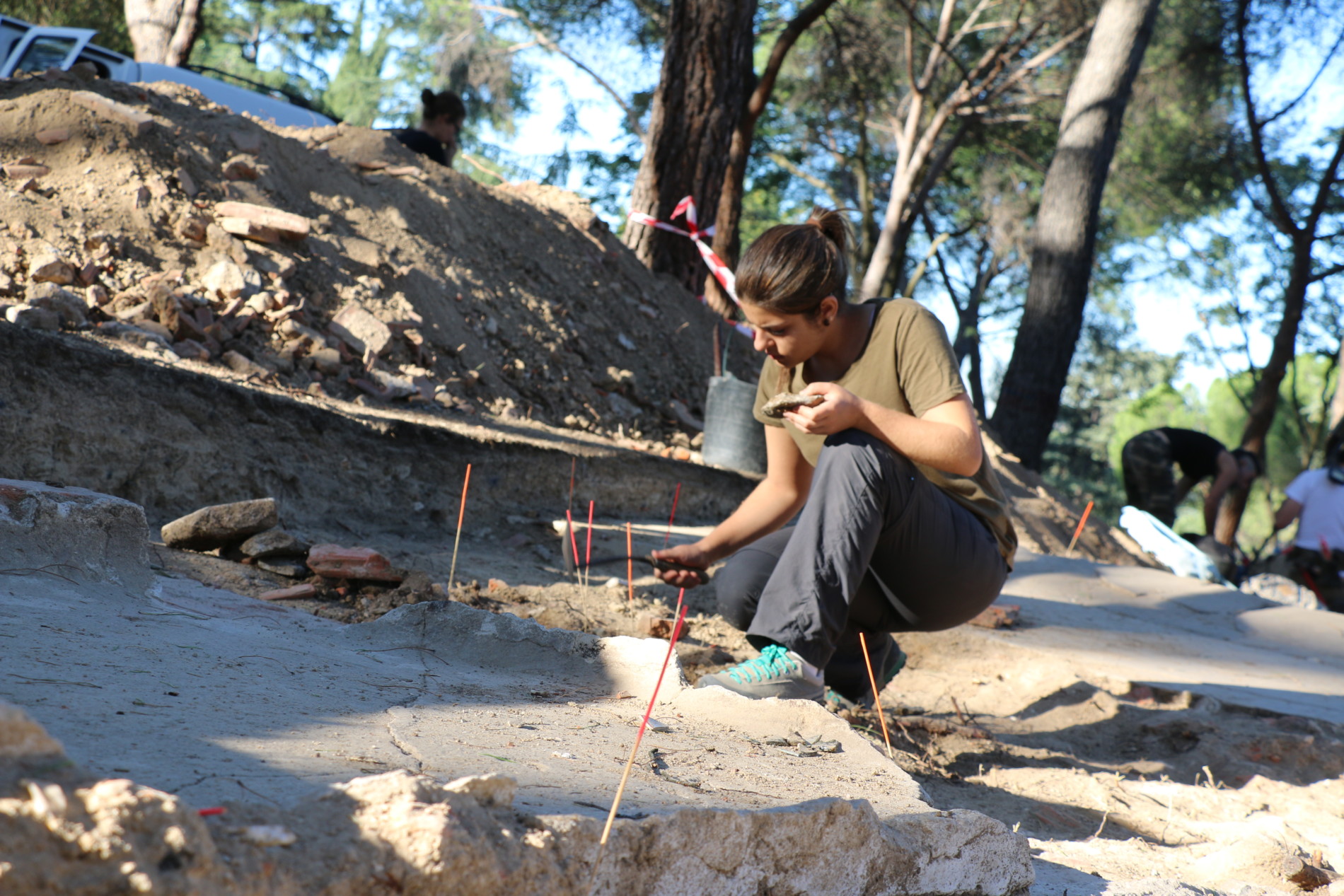Archaeologists typically get their first hands-on research experience through a field school. Field schools, therefore, are crucibles for our profession. Not all field school students eventually become professional archaeologists, but all who participate have formative experiences. Students discover more about themselves as they work with intense focus in unfamiliar territory and in basic living conditions. Working with others in a new place, particularly among people that are culturally different from those at home, creates lifelong memories.

Student Excavating in Spain: Modern Warfare Field School, 2017
Outward Bound Archeology Field Schools
All field schools are not created equal. Some are closer to modern times. More easily accessible and well connected. Others are so remote that only the barest vestiges of life in the industrialized world remain. Such field schools are thrilling, full of discoveries of both the archaeological record and of self – but they are not for everyone. For those ready to push the envelope, remote field schools are experiences that shape character and future, providing adventures that can rarely be repeated in regular life. In 2017, the IFR offers two such programs, each pushing the envelope in a different and unique direction.

Spitzkloof B is in the Richtersveld region of Namaqualand, a coastal desert in the northwest corner of South Africa.
South African Rock Shelters and trans human pastoralists
Our South Africa- Spitzkloof field school explores early human adaptation to the environment in the rugged and remote areas of the Richtersveld region of Namaqualand. For the duration of the program, buy antabuse cheap students live in tents in front of the Spitzkloof rock shelter and cook on mud stoves built the first day. The nearest town is a five-hour drive away, and a water tank is brought to the site only once a week. In this remote, dry place, students get a true feel for the life experience of the rock shelter ancient inhabitants and the world and work they left behind.
Study Archeology in The Mysterious Colombian Lost City

Students trekking in the jungles of the Sierra Nevada, Colombia
At the other end of the world, students in the high jungle field school at Colombia-Ciudad Perdida climb upward for three days, with machete-wielding guides, through the hot, mosquito-infested jungle, just to get to the site. This is an endurance expedition. Mules, staff and students all carry some of the food and equipment needed for the project. Mule trains bring fresh supplies periodically. Once there, archaeologists study the network of roads that connected Ciudad Perdida to cities belonging to a great civilization that has disappeared beneath the jungle with its people, who died following contact with European explorers and diseases almost 500 years ago.
Significant young scholars who are well equipped for work in remote locations direct these two field schools. They provide the rigorous historical research and academics that IFR guarantees plus adventure of the outdoors. They are ideal for archeology and history students who seek out and thrive in challenging outdoor environments and can learn in an edge of civilization settings.
IFR offers numerous archeology scholarships both merit and need-based, so that our high quality field schools are affordable to all students. Students earn college credits through UCLA extension. Application season for 2017-2018 begins November 2017.
Author: Dr. Ran Boytner, Founding Executive Director of the Institute For Field Research, Phd in Archeology, UCLA

